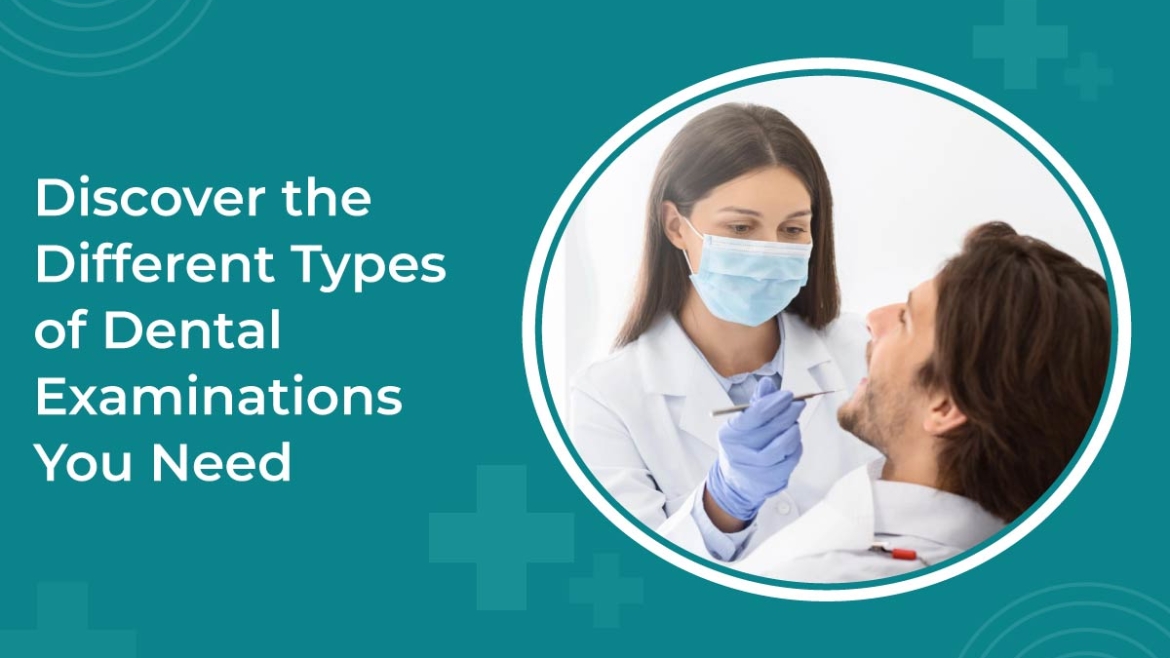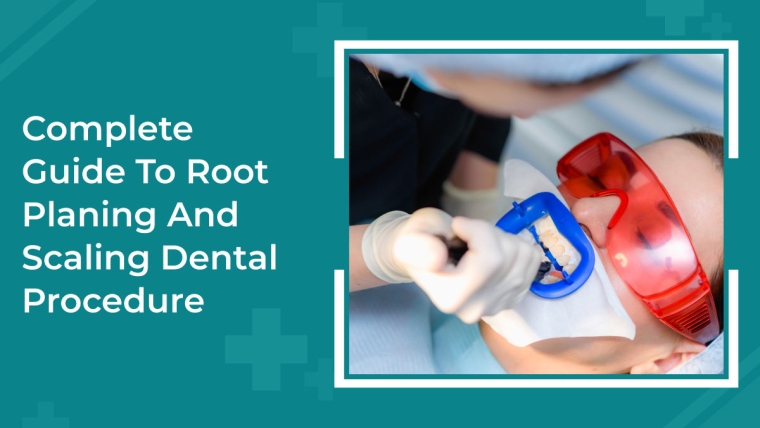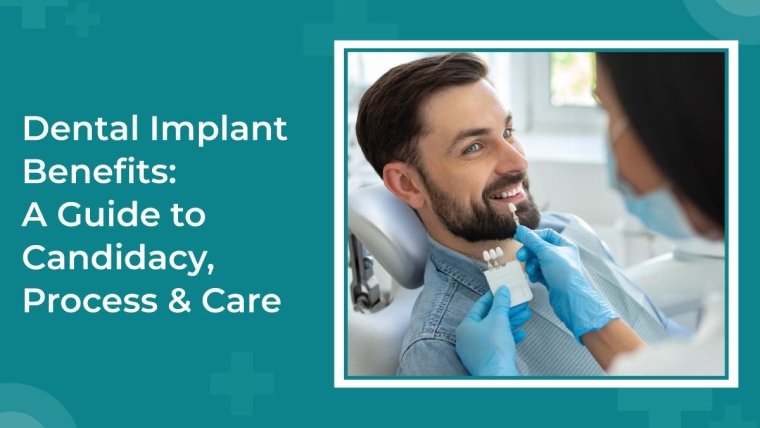Written by: Dr Ekta Khatri – Co- founder, The Func Dent – The Functional Dentistry Center, Bandra
Taking care of your teeth goes beyond daily brushing and flossing. It also means making time for regular dental exams. These appointments are not just routine; they are essential checkpoints that help prevent issues before they start and catch problems early while they’re still manageable.
Not every dental exam is the same. The type you need depends on your age, medical history, symptoms, and how long it has been since your last visit. Some exams are broad and detailed. Others focus on a specific concern, such as gum health or injury. Knowing the purpose of each one helps you make informed choices and stay ahead of potential issues.
Here’s a breakdown of the most common types of dental exams and how each one supports your oral health.
A] Routine Dental Exam
A routine exam is the standard visit most people are familiar with. It serves as the foundation of preventive dental care and is typically recommended twice a year. This schedule allows your dentist to monitor your oral health regularly and take action before minor issues become serious.
During a routine exam, you can expect the following:
- A professional cleaning by a dental hygienist to remove plaque and tartar.
- A check for cavities, tooth wear, and early signs of decay.
- An evaluation of your gum health, including any redness, swelling, or bleeding.
- Updates to X-rays if needed, especially if something cannot be seen clearly during the visual inspection.
These exams are key to maintaining healthy teeth and gums over time. They also allow your dentist to track changes that might indicate early stages of gum disease or other conditions. Regular visits help you avoid the discomfort, cost, and inconvenience of emergency dental work later.
Even if your teeth feel fine, this type of dental examination helps detect silent problems. Cavities may not hurt at first. Gum disease can progress without obvious symptoms until it reaches an advanced stage. By the time you feel pain, treatment may already be more complex.
B] Comprehensive Dental Exam
A comprehensive exam is more detailed than the routine version. It’s often required the first time you visit a new dentist, or when you return after skipping several years of care. This type of exam gives your dentist a complete overview of your oral health and any underlying concerns.
What sets a comprehensive exam apart is the depth of the evaluation. Your dentist will:
- Review your full medical and dental history.
- Examine dental surfaces for cracks, decay, or unusual wear.
- Inspect the alignment of your bite and jaw function.
- Evaluate soft tissue areas, including your tongue, cheeks, palate, and throat.
- Perform oral cancer screening as a standard precaution.
- Take a complete set of diagnostic X-rays to identify issues below the surface.
This type of exam is also common before major dental treatments such as implants, crowns, or orthodontic work. It gives your dentist the full picture needed to build a long-term care plan that addresses both current and future needs.
Comprehensive exams are not needed frequently, but they are critical at key moments. If it’s your first visit or if it has been several years since your last dental check-up, this is the right place to start.
C] Periodontal Exam
Gum health is just as important as your teeth, but it’s often treated as an afterthought. A periodontal exam focuses specifically on the health of your gums and the bone structure that supports your teeth. This type of exam becomes essential if you are at risk for—or already show signs of—gum disease.
What your dentist looks for during a periodontal exam includes:
- The depth of the pockets between your gums and teeth, measured with a small probe
- Bleeding, inflammation, or discharge from the gums
- Gum recession, where the gum line pulls away from the teeth
- Looseness in the teeth caused by bone loss
These findings are used to diagnose the stages of gum disease, from early gingivitis to advanced periodontitis. Early intervention is important, as untreated gum disease can lead to tooth loss and has been linked to conditions such as heart disease and diabetes.
If needed, your dentist may also perform an oral cavity examination to assess any abnormalities in the surrounding tissues. In more advanced cases, a periodontal exam is the first step in developing a treatment plan that may include deep cleaning, antibiotics, or surgery.
D] Pediatric Dental Exam
Children have unique dental needs. Their teeth, jaws, and oral habits change quickly during early development. A pediatric dental exam is designed with those differences in mind. These visits focus on prevention, education, and monitoring for signs of issues that may affect permanent teeth later on.
During a pediatric exam, the dentist will:
- Track how your child’s teeth are growing in and whether they’re coming in on schedule.
- Check for cavities, especially in the molars where food tends to get trapped.
- Assess bite alignment and jaw development.
- Teach your child proper brushing and flossing habits.
- Offer fluoride treatment or sealants when appropriate to reduce the risk of decay.
If you’re looking for a trusted provider for your child, finding a reputable dentist in Bandra can help ensure consistent and comfortable care throughout each stage of development.
These visits also serve as an opportunity for your child to become comfortable with the dental setting. A positive early experience helps build lifelong dental habits. It’s recommended that children begin seeing a dentist by their first birthday, and then every six months after that.
E] Emergency Dental Exam
There are times when waiting for your next routine exam isn’t an option. Sudden pain, injury, or swelling in the mouth needs urgent attention. An emergency dental exam is designed to quickly identify the cause of the issue and provide immediate treatment or relief.
You might need an emergency exam for reasons such as:
- Intense tooth pain that doesn’t go away
- A broken or knocked-out tooth from trauma or injury
- Swelling of the gums, face, or jaw that could signal infection
- Bleeding that won’t stop after an accident or dental procedure
The dentist will begin with a targeted review of your symptoms, along with any necessary X-rays or imaging. Depending on the diagnosis, treatment might involve temporary pain control or a permanent fix such as a filling, crown, or extraction. In some cases, referral to a specialist is needed.
It’s important not to delay care in these situations. Dental infections can spread quickly, and saving a damaged tooth often depends on how fast treatment begins.
F] Why Do These Diagnoses Matter?
Each type of dental exam plays a role in maintaining your health. Routine exams catch problems early. Comprehensive exams offer a full assessment when it’s needed most. Periodontal exams help protect the foundation that supports your teeth. Pediatric exams build healthy habits from a young age. Emergency exams respond to urgent needs when something goes wrong. So book your appointment at the top dental clinic today.
Avoiding the dentist due to a lack of symptoms is a mistake many people make. Oral issues don’t always hurt at first. Skipping appointments can give problems time to grow. By the time you notice, you may be facing more complex and costly treatment.
Making the right type of exam part of your schedule is a smart investment in your well-being. You reduce the risk of serious complications. You protect the work you’ve already done to maintain your smile. And you give yourself peace of mind.
Are You Looking for a Trusted Dentist?
Book your appointment today and take the first step toward better oral health!
Schedule Your Next Visit
If it has been more than six months since your last exam, or if you’ve never had a comprehensive or periodontal evaluation, now is the time to act. Choose a dentist you trust and ask which type of exam best fits your current needs. Whether you’re maintaining healthy teeth or addressing a concern, regular care keeps you on the right path.
Dental health doesn’t fix itself. It requires attention, consistency, and the right information. Contact us for the exam that’s right for you and build a care routine that lasts.




